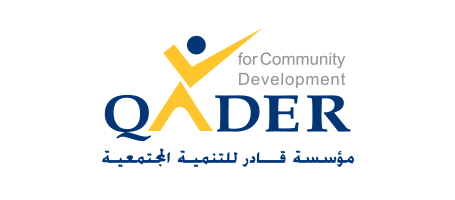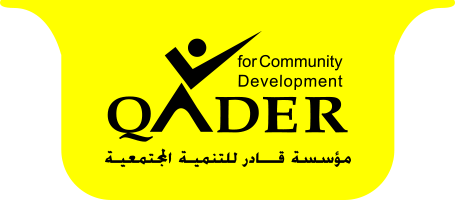Launching national consultation on diagnostic services for intellectual disabilities

The Ministry of Health and QADER for Community Development launched a national consultation process on diagnostic services for children with intellectual disabilities. This initiative took place during the first national workshop held in Ramallah, aimed at reviewing the current diagnostic services available for intellectual disabilities, the tools used for diagnosis, identifying the key challenges faced by institutions/centers in the diagnostic process, and discussing the general framework for quality standards in these services, as well as defining the main tasks for the national team and membership criteria.
The workshop was attended by Dr. Samir Shamasneh, Director of the School Health Department and Disability File Officer at the Ministry of Health, Dr. Samah Jabr, Director of the Mental Health Unit, and several representatives from the Ministry of Education, including Mohammad Al-Hawash, Director General of the General Department of Guidance and Special Education, and Nariman Al-Sharawna, Director of the Special Education Department. Additionally, Fadwa Maharmeh, Director of the Specialized Institutions Department at the Ministry of Social Development, participated, along with several institutions and centers specialized in diagnosis, such as Takween Center, Alfa Center, the Palestinian Childhood Institute at An-Najah University, the Rawan Child Development Association, UNRWA’s Mental Health Program, Gaza Mental Health Center, the Palestinian Counseling Center, the Future Center for Child Neurology and Autism in Jerusalem, the Happy Child Center, and Halhul Mental Health Center. Experts and professionals from Jerusalem and inside Palestine, as well as academics from Bethlehem University, An-Najah National University, and the Arab American University, also took part.
Dr. Samir Shamasneh, Director of the School Health Department, opened the workshop and welcomed the attendees on behalf of the Minister of Health Dr. Mai Al-Kaila. He emphasized the Minister's interest in this vital national effort and provided an overview of disability in Palestine, including key data, indicators, barriers, and challenges that people with disabilities face, particularly in the diagnostic process for intellectual disabilities.
Lana Bandak, General Director of QADER, welcomed the participants and stressed the importance of the workshop for the well-being of children with intellectual disabilities and their families, highlighting their right to receive high-quality, appropriate, and tailored services. Bandak also referred to a 2019 study on the reality of diagnostic and evaluation services for children with intellectual disabilities in the West Bank, conducted in partnership with the Ministry of Health, Ministry of Education, and Ministry of Social Development. The study concluded that interventions are needed to institutionalize diagnostic and evaluation services within the official entities responsible for providing these services, in full collaboration with civil society institutions and relevant private centers. It also recommended adopting clear and agreed-upon definitions of intellectual disability for those working in diagnostic and evaluation, as well as using standardized, validated, and culturally appropriate diagnostic tools.
Dr. Samah Jabr, Director of the Mental Health Unit at the Ministry of Health, discussed the state of mental health in Palestine and the challenges facing this sector. She praised the collaboration between the Ministry of Health and QADER for Community Development, highlighting the progress made despite previous challenges. She also noted the lack of comprehensive data on intellectual disabilities in Palestine and the difficulties linked to the Palestinian context regarding intellectual disabilities.
George Mansour, Program Director at QADER, provided a brief overview of the "WE CARE" project, a partnership with Caritas Germany, funded by the German Development Agency, which is supporting the workshop. The workshop was moderated by clinical psychologist and consultant Yiad Ghandari Hakim.
During the workshop, eight presentations were given by institutions, centers, and experts on the nature of the diagnostic services they provide for intellectual disabilities and the diagnostic tools used. The workshop concluded with a series of recommendations and next steps, which included identifying the key gaps to address in the action plan, adopting agreed-upon definitions, and developing Palestinian standardized diagnostic tools, either by integrating globally available tools or using new, validated ones. The most important recommendation was the formation of a national team to discuss and define quality standards for diagnostic services, select the most appropriate diagnostic tools, and plan capacity-building interventions for the staff of institutions and centers that provide diagnostic services.

